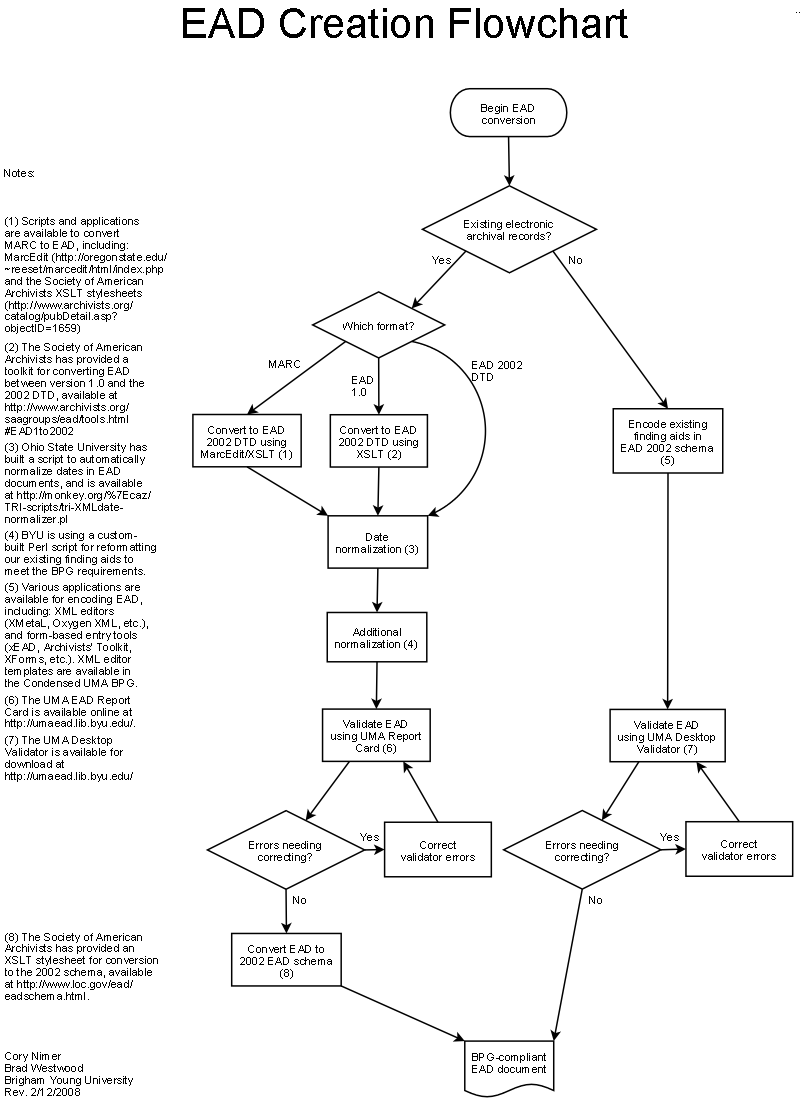Best practices training: Difference between revisions
Jump to navigation
Jump to search
| Line 8: | Line 8: | ||
===Additional Resources=== | ===Additional Resources=== | ||
* For institutions using an XML editor or creating EAD by hand, you can use the native features in Excel and Word to speed up the process. A [http://archives.state.ut.us/containerlist/containerlist.html Flash movie] has been created to walk people through data entry within a container list. | * For institutions using an XML editor or creating EAD by hand, you can use the native features in Excel and Word to speed up the process. A [http://archives.state.ut.us/containerlist/containerlist.html Flash movie] has been created to walk people through data entry within a container list. | ||
* Sample flowchart for the encoding and conversion of legacy EAD documents prior to aggregation, with resources available for each step. [[Image:LSTA_flowchart.png|frame|LSTA project sample flowchart.]] | * Sample flowchart for the encoding and conversion of legacy EAD documents prior to aggregation, with resources available for each step. [[Image:LSTA_flowchart.png|150px|frame|LSTA project sample flowchart.]] | ||
Revision as of 11:09, 3 April 2008
Training Materials
Best Practices training was held at the Utah State Archives on March 7, 2008.
- Slides from the LSTA Best Practice training are available here.
- Topics not covered in the training slides are covered in the Best Practice Guidelines themselves, available at the UMA Report Card site.
Additional Resources
- For institutions using an XML editor or creating EAD by hand, you can use the native features in Excel and Word to speed up the process. A Flash movie has been created to walk people through data entry within a container list.
- Sample flowchart for the encoding and conversion of legacy EAD documents prior to aggregation, with resources available for each step.
